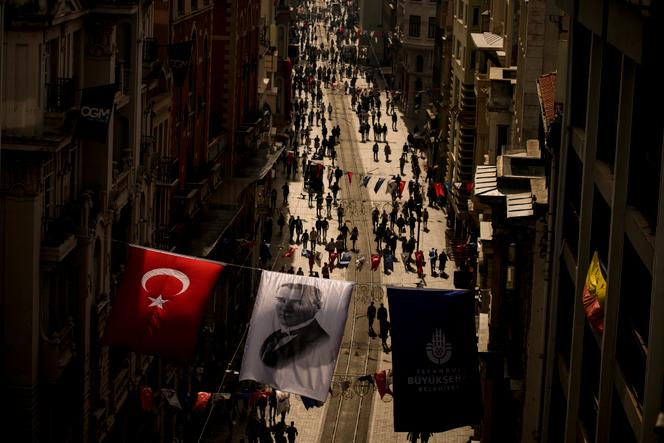


Stationed at the entrance to the Youth Park in central Ankara, the security guard scratched his head beneath his helmet. He had heard about a concert scheduled for midday but hadn't been informed of the exact location. He glanced questioningly at his colleague, who pointed vaguely in one direction. The alley did indeed lead to a square where a modest stage had been set up.
The autumn sun was shining and the members of the Ankara Municipal Orchestra were finishing their set-up. On stage were two electric guitars, a darbouka, a keyboard and a qanun, a plucked string instrument that is common in the Near East. "Hello everyone. To celebrate the founding of our beloved Republic, we have prepared for you the favorite songs of our great leader Mustafa Kemal Atatürk," said the singer by way of introduction. It was hard to tell who he was talking to since the esplanade in front of him was absolutely empty. At the first notes of the music, a few passers-by stopped. Some of them hummed and danced a few steps.
Ayse Gül, a 20-year-old student, happened to be there with a friend. "For me, the Republic is the political regime that has liberated women, given them rights and empowered them. We now have freedom of expression, the possibility of working... It's really fundamental for us," she explained enthusiastically, as she readjusted her pearl-gray silk headscarf.
For several years, Recep Tayyip Erdogan had been promising a great event for the centenary of the founding of the Republic, on October 29, 2023. Like a common thread running through all his speeches, "2023" was stamped like a label on the posters of countless political and cultural events. These included the spring parliamentary and presidential elections, which Erdogan and his Islamo-nationalist coalition won without difficulty. Similarly, the new draft constitutional amendment has been presented as "the" constitution of the new century into which the Turkish republic is now embarking. Similar rhetoric was employed for the previous constitutional reforms in 2010 and 2017.
This language used to give the country a force, a future, in an authoritarian political context where the opposition's space for political expression has been reduced to a trickle. However, just a few days to go before the fateful date, it became clear that the preparations were lacking momentum. Now that the elections have been won, the celebrations no longer have the same flavor for the president. From the outset, Erdogan presented himself as the herald of the Islamo-conservative working classes in the face of a Kemalist establishment portrayed as authoritarian and undemocratic. So, in this centenary year, his reappointment as President of the Republic now has the stamp of history and appears to be the culmination of a long process of reclaiming power for the people.
You have 60% of this article left to read. The rest is for subscribers only.
